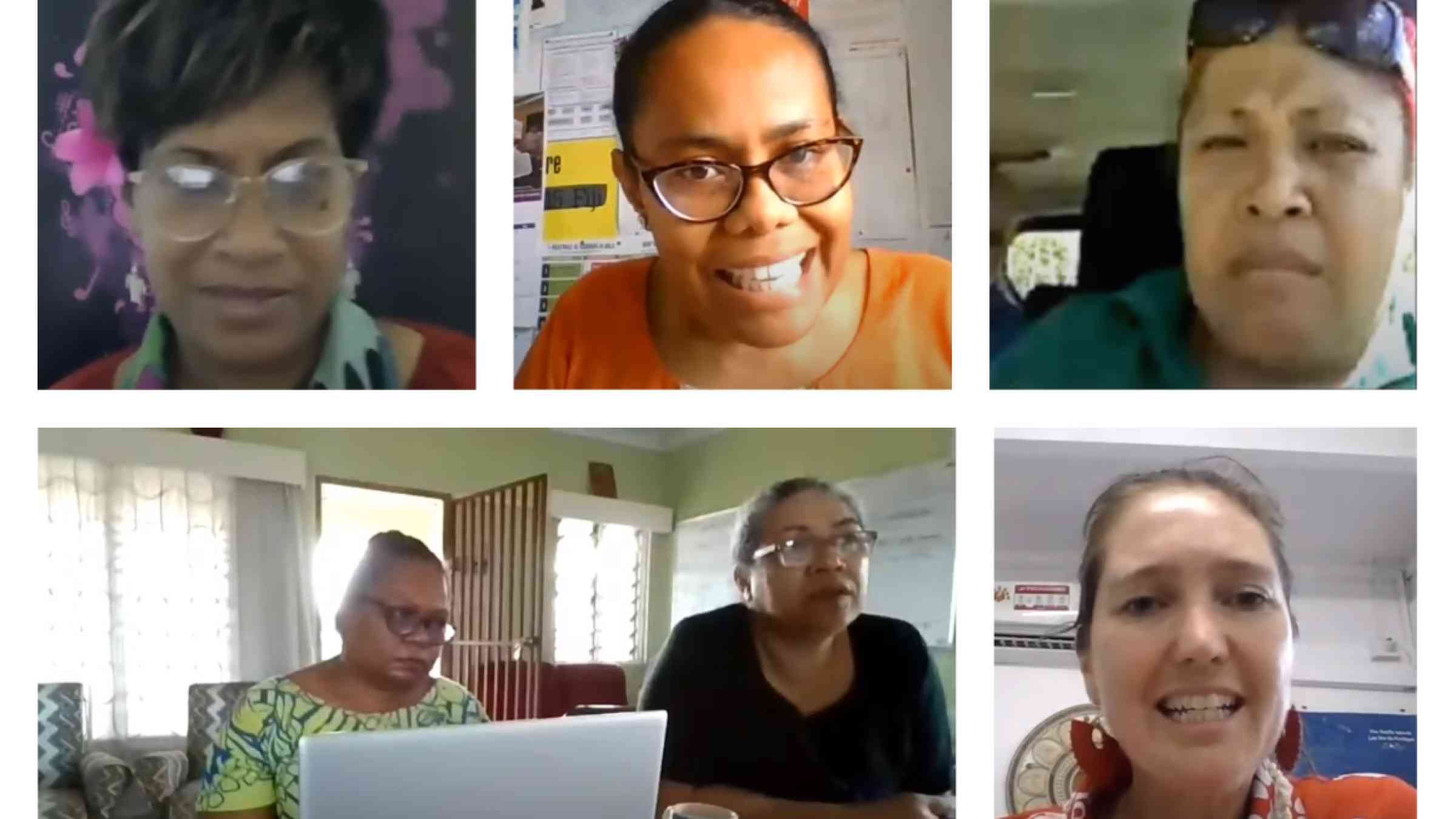Local wisdom and leadership key for resilient Pacific

Suva –Local wisdom, ownership and leadership are critical factors for effective humanitarian action in support of communities exposed and vulnerable to climate and disaster risk. Preparedness and response planning need to be more collaborative and inclusive, the Pacific Resilience Partnership (PRP) ’s webinar on ‘Local Humanitarian Action for a Resilient Pacific’, was told.
Three female panellists called for a transformation at all levels and between all stakeholders for more effective disaster preparedness, response, and recovery as they articulated what ‘humanitarian localisation’ means for them.
Ms. Vani Catanasiga, with the Fiji Council of Social Services (FCOSS), highlighted the importance of having the right legal structure to serve as an enabling environment for civil society. FCOSS is mandated under section 33 of Fiji’s Natural Disaster Management Act of 1998 to coordinate civil society organisations.
During a national consultation in 2018 to review the current Act, it was highlighted that challenges remain around subnational coordination, especially in delivering quick responses. As a result, in 2019, a new protocol was developed which has enabled FCOSS to mobilize 300 volunteers to support risk communication and contact tracing during three cyclones this year.
Ms. Catanasiga emphasised the importance of volunteers, saying that “they bridge gaps, including fear, which we encountered working on COVID-19”. Though the traditional role of FCOSS is to coordinate, Ms. Catanasiga said there was a need for the council to directly respond, since many NGO workers had to work from home because of COVID-19 restrictions.
Ms. Vanessa Lolohea, of the Tonga National Youth Congress, shared some examples of successful responses in partnership with government and civil society, with a focus on water and sanitation and livelihoods, in small outer islands. The Congress found their existing arrangements inadequate because there was no policy for volunteers and advocated that such a policy could include formalizing CSO engagement under the arrangements to enable Civil Society Organisations (CSO) to work more efficiently and make timely decisions.
Ms. Lanieta Tuimabu, of the Fiji Disabled People's Federation, shared the results from the mapping survey of localization actors in the region including perspectives from people living with a disability. Key challenges were identified in four areas: lack of capacity; lack of resources; weak governance; and lack of gender equality and social inclusion.
In terms of gender equality and social inclusion, the Federation worked hard to build the capacity of people with disabilities so that they can protect themselves from the pandemic. In addition, the Federation advocated that people with disabilities be included not only as recipients of service, but also as part of preparedness and response teams as well.
The webinar was hosted by the PRP Technical Working Group (TWG) on Humanitarian Localisation, with the Pacific Islands Association of Non-governmental Organisations (PIANGO) and the International Federation of Red Cross and Red Crescent Societies, which moderated the discussion.
Ms. Susan Grey, of Femlink Pacific and Co-chair of the TWG on Humanitarian Localisation opened the event by saying that “In this current era of multiple hazards, compounded further by COVID-19, the need for effective local humanitarian action based on strong local capacity has never been more obvious.” Ms. Grey added that it was important to keep up efforts to strengthen inclusion of women in local level decision making as reflected in international agreements, such as the Beijing Declaration and Platform for Action, and the Women, Peace and Security Agenda.
The PRP technical working group on localisation comprises various humanitarian and development actors, from government, civil society, private sectors, faith-based and community-based groups across the Pacific. It aims to establish communities of best practice. Through such collaboration and knowledge sharing aims to advance the localisation agenda in the Pacific as outlined in the Framework for Resilient Development in the Pacific (FRDP) and the global Grand Bargain agreement at the World Humanitarian Conference.
This ‘Local Humanitarian Action for a Resilient Pacific’ webinar is a part of a PRP series which showcases resilience initiatives within the context of multiple hazards. It also showcases collective and innovative resilience efforts at the regional, national and community levels, to facilitate peer-learning and improve resilience actions.
The PRP, whose governance arrangements are guided by Inclusivity, Partnership, and Leadership, was established by Pacific governments to support national implementation of the FRDP.
A video recording of the webinar can be accessed here
Webinar information can be obtained from here